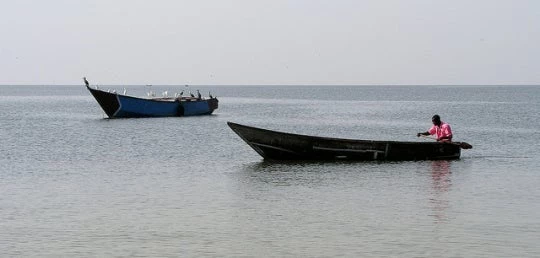
This past week I attended the bi-annual conference for the International Institute of Fisheries Economics and Trade. The hottest topics in fisheries economics were presented – the global state and outlook of aquaculture, capture fishery models, artisanal fishing, governance, rights based management, individual transferrable quotas, the impact of climate change, and dozens of others. Mostly comprising academics, the talks were technical, pithy, and representative of latest. An honest opportunity for discourse amongst equals to share and vet their work on ocean economies.
As a non-economist, I was in the minority here (though not a complete outsider – ecologists, trade experts, and fishermen were also in the mix). In spite of this lack of ‘expertise’ it is clear that the issue of ocean health is an economic one. We lose billions of dollars every year from mismanaging our fisheries and degrading ocean habitats. That money comes out of everyone’s our pockets. From small-scale fishers to large industry fleets to average consumers, we all pay the price. Economics can indeed play a large role in solving our ocean health problems, how challenging it is to get economists to agree on these solutions is another matter…
I came with Jim Anderson, the World Bank Fisheries Advisor and leading natural resource economist, to present our work with the Blue Ribbon Panel (BRP), a group of 21 ocean leaders the World Bank convened to advise the global community on the future of ocean investment that is both economically and ecologically sustainable. Several BRP members –the economists– were also attending the conference, and so the opportunity was ripe to present our report, which proposes an integrated approach to ocean investments as a way to ocean health. Our intent at the conference was to engage this predominantly economist IIFET crowd with the interdisciplinary approaches and findings of the BRP, while also capturing the impressions of technicians and experts to help us carry this work forward.
The results were direct, reassuring…and scathing. And exactly what we were hoping for. As a non-economist, I have a fresh perspective into a field where words are not minced, opinions are not sugarcoated, and everyone has an opinion.
Overall, the Panel’s initiative and report were well received. Many in the audience were familiar with the Panel and applauded the effort. Ragnar Arnason (Professor of Economics, University of Iceland) – Panel member, supporter, and sometimes critic – offered an articulate deconstruction of the report and the process. He highlighted that the results represent compromises of both ideas and output and that the diversity of the Panel assured that scarce specifics could be generated. Rognvaldur Hannesson (Professor Emeritus, Fisheries Economics, Norwegian School of Economics), this year’s recipient of a prestigious IIFET fellowship, echoed these sentiments and furthered them by noting that the report is so high level, that it is difficult to discern on-the ground application.
To an unseasoned outsider, the criticism seemed extreme and could have led to the interpretation that the BRP’s efforts were in vain. And yet, much the opposite was true. Following the Socratic evisceration there was general consensus that the Panel was largely on target, and that one of the greatest shortcomings was that the BRP was not amplified, with spin-off reports and sub-specialized panels to dig into the flesh of the outputs, in effect addressing both Ragnar and Rognvaldur’s chief criticisms. The economic community was hungry for more. The idea of a diverse advisory body, with meaningful representation of economic and business expertise, is appealing. Consideration of governance and rights underlain by rigorous analytics by influential leaders may just get us the necessary steps closer to solving some of the ubiquitous challenges facing our seas.
Moving forward, this feedback is important. It is empowering, validating, and useful, even if sometimes stinging. Ground-truthing our efforts with honest, direct, and public feedback helps us redirect when necessary and better formulate strategy so that we may find the sustainable ocean solutions for which we are searching. As a global community, we can continue to work toward promoting shared prosperity, eradicating extreme poverty, and improving the health of our oceans.


Join the Conversation